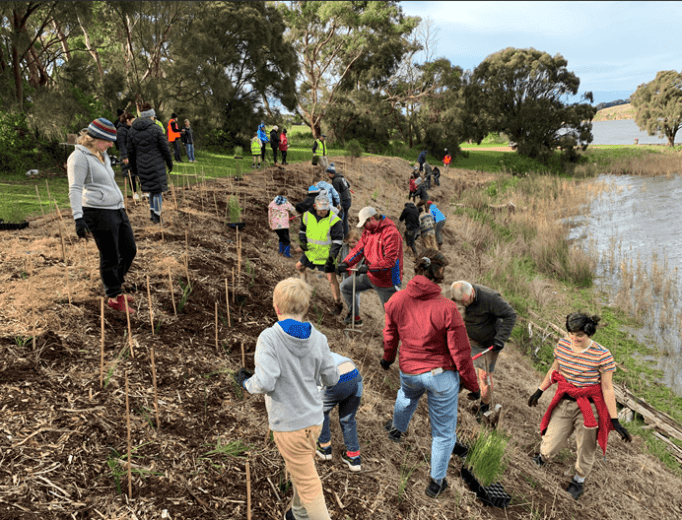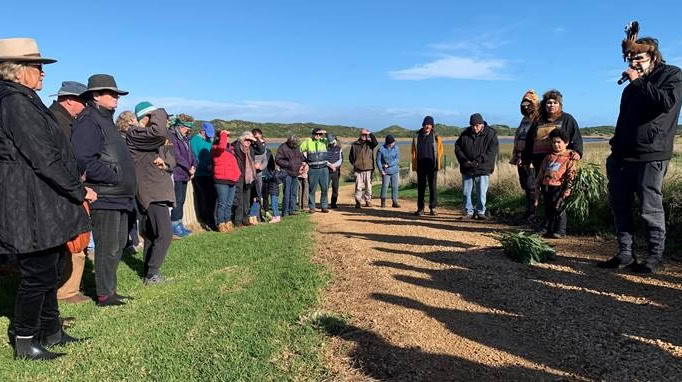
The Warrnambool Coastcare Landcare Network in Victoria was established in 1995. The main focus areas include urban and rural revegetation on public and private land, monitoring and conserving coastal and hinterland biodiversity, community education on local fauna and flora, supporting the startup and development of new natural environment groups, building a broad network and advocating for better natural environment policy and actions.
Warrnambool Coastcare Landcare Network monitors little penguins and other seabirds as part of the ‘Middle Island Project’ and with support from a Coastcare Victoria Community Grant, this year focused on environmental education and raising awareness in the community. A highlight was an educational evening, ‘Short-tales of short-tailed shearwaters’ where community members heard from a local expert about these amazing birds and were introduced to our new audio and video equipment which will enable us to start monitoring them as well exciting penguin research happening at the local Deakin university campus.

Warrnambool Coastcare Landcare Network volunteers dedicated over 100 hours to the little penguin and seabird monitoring program this year, which is part of the world-famous Middle Island Project. This season, volunteers increased community engagement through environmental education to raise awareness of the importance of our local environment and wildlife.
Lillian Maher, Committee Member of the Warrnambool Coastcare Landcare Network, stated, “Sometimes, bad news stories about our environment can be a bit discouraging when we put so much effort into conservation, but seeing the interest and passion of the community during our programs reminded me that we share the same values and that we can, and will, work together to protect our local environments and wildlife.
The success of our outreach programs this year highlighted that community members are keen to learn about and help protect the environment but may not always know where to start. That’s why providing these environmental education opportunities for the local community is so important because they raise awareness, foster appreciation of the environment and provide ways for community members to get involved.”